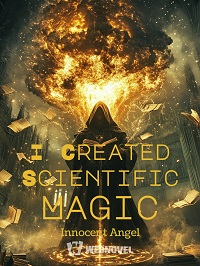The Heart is a Void: Ashes to Ashes - Chapter 98: Iron Fingers that Ply
Chapter 98: Iron Fingers that Ply
Once the books were stacked on top of the drawer, Sharak picked one up and turned to the group. “Now, our use of the automatons is not simply l’arte pour l’arte. Since each draws on information from many texts, and learns from the conversations and writings of adventurers in town, it also gathers information about things that we would otherwise be unaware of. We have a lot of knowledge of your people’s customs from this, over time.
“But it also functions pour l’arte. That is, it even alerts us to some authors whom we didn’t know about previously, and we can then search for their books by consulting with nearby libraries and collectors. For instance, John Ford, whom we only found out about from the Preface to this automaton-written novel. The automaton is a master of the conceit, and conjured up a scenario where they are writing as an embattled, slightly controversial old French author. It’s well worth a read.”
He picked up a black book, and opened it. It had about 150 pages, at Crucis’ estimation. At the top of the first was the title of the novel, in all-caps: ‘A GENIE LURKS IN HIS EYES’.
The group pored over the book, fascinated by the idea of a novel made by one of these automatons.
A GENIE LURKS IN HIS EYES
by ALPHONSE N. AUTOMATON
VOLUME I
PREFACE TO THE VOLUME
I am not at all sure that this is the kind of thing that would be at all popular in a general way, or with editors. That does not concern me greatly. But people are often absorbed in trifling issues, and so likewise I, who shall deign to discussing the novel’s reception in this preface.
Those who would mockingly characterise this as a romance are mistaken. It is no more a romance than Ford’s ‘Tis a Pity, or Marlowe’s ‘romance’ between Faust and Helen (or the doppelgänger thereof). It is a tragedy, and lacks the romantic innocence beloved of Romeo and Juliet. It is a tragic tale of strife and social climbing in an aristocratic society, where love is often just a sinister contrivance. Yet people wish to brand it as a sentimental novel, something which it is not. Why do these review-writing dullards wish to brand it in this way? I have no idea. The press is an enemy of literature, that is all that I can say.
And why parley with an enemy when you could take them on in a dashing contest of swords? Therefore I proclaim that, yes, this story is a romance, a romance greater than any that you have seen. And thus I voyage to the battlefield that my enemies have chosen as their place to chide me.
I exhort you, dear reader, read this story by candlelight, and while a vase of roses is in front of you to set the scene. If you cannot afford that, then a cheaper alternative is to read it under the stars, so that you can gaze upwards at them and ponder the question – is the true love portrayed in this novel not, compared to the love you may have known before, like a star, shining with its luminous wings in a heaven far above? If you opt to keep a rose during the long period of reading, you may water it with the pool of tears which you cry as you read this novel’s tragic romance. Do not try to hold your tears back, for then I fear that you may be swallowed by a deluge in the aftermath of reading.
My readers will, I know, be very kind to me for saying all this. They will say, no doubt, that I have described a very charming girl in the Madame de Sévigné, but that I have not described a very interesting or artistic character. They will describe my “romantic” tendencies, and will call me a fool, or a fool in love, or something else, I dare say, but I don’t care. I don’t intend to argue the matter. I will go on saying what I have said. I don’t want any of your advice, nor any of your opinions.
The persons who read my books are very silly if they think that I believe a word of all that I write. Yet I would sooner believe it than believe in their foppish criticisms. I write just as I please, and I say just what I please.
“It says that it’s Volume 1. How many volumes in this work?” Crucis asked.
“It has reached the second Volume,” Sharak replied, “about 20 Chapters in. But novel-writing is still a work-in-progress for us, so we are eager to see how it shall hold up at that length. We are still experimenting with refinements to the process.”
“Well, this Preface is certainly a good start. Well-begun, half-done, yes?”
“Quite.”
“This automaton is quite impressive,” Grisier said.
“Does it write whole novels?” DicingDevil asked.
“Thank you. Well, I should probably explain how our novel-writing automaton works,” Sharak said. “We have one automaton who is trained based on observing typical novel structure, but it only writes fairly skeletal outlines that often summarise the plot in a vague outline. We then pass this through another automaton, which is better at specific passages, to rephrase each individual Chapter and scene. In the process, often one Chapter becomes several. This Preface has been passed through both, and is quite polished by now. In fact, the second automaton, named Adonais, did the vast majority of the writing here.”
“I make a rough Chapter division from the original manuscript,” Fahiz added, “then each Chapter is written out individually. We generally have it churn out a bunch of Chapters, then select which parts to include.”
“Yes,” Sharak said. “While the automaton will easily produce good work, it requires the correct spur from us. Then it will gallop effortlessly, roughly in the direction indicated. Anyway, do you wish to read any more of this? I am curious about how many of the phenomena it mentions are ones that you adventurers would be more familiar with: places like the Theatre Guignol, or that Michelangelo had an unfinished painting named The Battle of Cascina.”
“I know of that theatre, it’s in Paris, I think?” DicingDevil said. “And yes, it would be interesting to see an automaton’s novel.”
“A novel by an automaton would be a refreshing change, after seeing vain, raucous humans declaiming their own maudlin novels from makeshift pulpits across Kruxol,” Crucis said. “And yes, it does sound like a place in Paris, I remember it because my dead grandfather used to misread its name as ‘Gogol,’ a Russian author’s.”
“In Paris?” Sharak said calmly. “Our automaton asserts the same, but we had not heard of the theatre before the machine wrote of it. Of course, many details of the automaton’s account are probably inaccurate, though it does pick up on a large amount of information and sometimes organises that. For instance, the statue at the beginning of Chapter 1 here is unlikely to actually be in Paris, and I’m sure that a few of the places, names, etc., may be slightly off. But is Paris a city, associated with romance, fashion, and a historical aristocracy?”
“That it is,” Grisier said calmly.
“Excellent. Well, you may read on.” He slowly turned the page “I personally am most fond of the Preface, it is the gem — the sapphire — of this piece’s Areta. It is probably the most polished part of the work.
“It is followed by the ‘Phantasmagoria,’ or ‘Praxa’ in our language, a tradition of literature in this nation where a story is preceded by a scene depicting a fantastic mirage that often connects to the story. It is a deliberate untruth or illusion, often taking the form of a fictionalised historical or religious event. It occupies the place where your novels might have a ‘Prologue’ or ‘Introduction’. Since it is in some ways a standalone section of the work, along with the Preface, we had those sections polished as soon as they were written. Sadly, the rest of the book is still just a skeletal summary which hasn’t yet passed through the other automaton, and it’s not fully ready for reading.
“Fahiz is still drawing up Chapter divisions, and then we will take a few days to finish the first Volume proper. Novel writing machines are still a work in progress, we’re figuring out how to run them efficiently. So, unfortunately, Chapter 1 for now is still skeletal in nature — but perhaps it is for the best, since you may provide us with useful information about it.
“After a solid Phantasmagoria — here titled in Italian for thematic reasons, to keep up the setting of the ‘illusion’ — the writing becomes sadly a bit weaker and more summative by Chapter 1, but I’d still like to know if it’s barking up the wrong tree entirely.”
He held out the book, and let the party browse through its early pages.
A GENIE LURKS IN HIS EYES
LA FANTASMAGORIA
I
In the month of October of the year 1527, a young man of twenty-two years of age, tall and well-built, was walking through the streets of the city of Nuremberg in Germany. He wore a long grey cloak, a blue doublet, and a cap with a long feather in it.
II
Now this young man was none other than the celebrated Italian artist, Michelangelo, whose reputation for greatness had preceded him even to Nuremberg. And on this day, he was on his way to the castle of the city princes, to present his work The Battle of Cascina to the assembled nobles, in return for the munificent sum of three hundred ducats, a great fortune at that time.
III
At the castle, he was met by the Count Palatine and escorted to a large hall where the paintings were already being unrolled. Everyone gathered round to look at them, for these were not the usual religious pictures which were hung there every day. These were the first pictures from the hand of Michelangelo which had ever been displayed in Germany.
IV
In one of the pictures, a young warrior was seen riding on a white horse at the head of his men, leading the attack against a horde of Pisans; in another, the dead Pisans were lying in heaps; in a third, the horses and banners of the Florentine knights were in full view, and the whole scene was bathed in the light of the setting sun.
V
A murmur of admiration ran through the room when the young artist, after sketching this first picture, stepped back and said simply: “I leave the rest to your imagination.”
THE TURNING OF THE TABLES
ON A STREET in the Latin Quarter, at the corner of a café, stands a statue. The statue is of a bearded man in a flowing gown, head bent as though in deep thought, one hand raised to rest on a roll of manuscript. No one knows who the man is, or was, or what he thought, but the statue has stood there for more than a hundred years, and it is a Parisian icon.
Some rumours say that this statue represents Michelangelo or a pupil thereof, but few take this seriously. The reasoning behind this rumour is a simple local superstition. When a Michelangelo painting was stolen from the Louvre, the half-masked thief was said to be the spitting image of this statue. A week later, the statue had been voluntarily returned by this mysterious thief, whose identity was unknown. People remarked that the painting’s colours had now become more vibrant, and the Christian figures whom it depicted looked almost alive. It was briefly a habit among the upper-class to take drugs and then visit this painting, so that they could ‘experience’ a real encounter with the painting’s animate-seeming figure of Jesus.
As the notoriety of the painting increased, rumours went around that this thief had actually been Michelangelo himself, or his ghost, returning to complete his work. It was hence considered, by a superstitious logic, necessary that painters pay reverence to this statue before embarking on a great work, though outside of the Latin Quarter this habit never caught hold.
The man in the statue is about six feet tall, and the statue is about nine feet tall. The bronze is a foot thick. The figure is mounted on a marble base twelve feet high. The total height of the whole thing towers above the street. The artist, by attestation a man named Durand, made the statue some time between the 15th and 17th Century.
The Latin Quarter is on the left bank of the Seine, near the Sorbonne and the Sorbonne gates.
It is here that we begin our tale:
A student of history, a certain Julien Sorel, walked briskly through Paris after recently arriving, and stopped at the statue. He was a young man of twenty-four, with dark hair and flashing eyes, and the statue seemed to speak to him in the voice of the Seine. “I would tarry here, but people would laugh at such as I,” he said, and made his way across the bridge to the Ile de la Cité, to where the Latin Quarter begins.
He rented a room in a small hotel on the Ile de la Cité and, as his only luggage, took from his valise a large, empty journal. He began to write. “I have come to Paris. It is a fair city, but in truth, its greatest wealth belongs to the aristocrat. I have come to Paris with nothing.”
It was the first of September.
That evening, Sorel wrote in his journal, “At eight I dined alone at the Cafe Anglais. . . . After dinner I took a carriage and went to the nearest Bibliothèque, where I read till midnight. Having covertly observed the local fashions, I put the money from Nice conmanship to good use by renting more appropriate clothing – though still not grand, it is considered respectable. I left and went to the Theatre Guignol, where I checked for which plays are being shown. After reading some more in the Bibliothèque to find out about these plays, to ease gossip, I then crawled back to my lodging. This will not do. I must seek connections, parley with the lords and ladies of wealth, and if fortune smiles on me then I shall live not in these dour hotels but in a mansion on the Seine.”
Early the next morning he went for a walk near the Louvre, and he wrote of the day that followed in his journal: “I socialised from early till late. Some times, I wonder if I am not an actor playing the part of a wealthy female socialite. I went to the Salle des Quatre Saisons, where I stole some clothing, and to the Italian Opera. There, I met the Baroness de Vautour . . . I saw the Italian troupe at the Italiens and the Opéra-Comique. . . . I went to the Gymnase-Dramatique with her and her husband, and saw ‘Barbe-Bleue’ and ‘La Dame aux Camélias’,. . . . There I tarried as well with the Madame de Sévigné, who is youthful, talkative, and in good health. After, I walked with the Baron de Vautour in his vast Gardens, and he was impressed at my knowledge of the flowers and advice for the garden. He cursed his own gardeners, saying that they were good-for-nothings that never told him how to build the grand garden he desired! He said that he would be attending the Opéra-Comique tomorrow, where I will accompany him and the Baroness to watch ‘Giselle’ and ‘Don Quixote’. . . . I saw that some Italian royalty were visiting, but I daren’t approach them at this stage. Madame de Sévigné made an appointment to meet me tonight at the ‘Pont des Arts,’ a place that I am not familiar with. I wonder what designs she has?”
He was beginning to settle into his Parisian life. He often thought of the old hypnotist in Nice, and wondered if it was right not to consult the old man before departing here to seek a better life. The statue reminded him of the hypnotist, and he stared at it for a few seconds before preparing to set off to the Pont des Arts late at night.
“Julien Sorel? I think I’ve seen that name before,” Crucis remarked.
“Yes. I think he’s from a story by Stendhal,'” Grisier replied. “The Red and the Black?”
“Stendhal? Must be.”
“Interesting. I am quite certain that we have no books by this ‘Stendhal,’ or with a character named Sorel,” Sharak said. “This automaton was trained, in fact, mostly on the structures of Kawabata, Swinburne, and Stoker. But it wouldn’t surprise me if the automaton picked up on some information about Stendhal’s Sorel, and connected it with the French setting… in much the same way as it might mention other French things, such as the Louvre. But the author’s name sounds German. Is Stendhal French?” Sharak said.
“Yes,” Grisier replied.
“I see. Is his Sorel a similar character? It also wouldn’t surprise me. I should account that a good thing, in many ways, it shows that the automaton is able to make connections and figure out archetypes on some level. We had to work on that, in order to have it write at length.”
“In a sense, yes. I think the other Sorel was a social climber who seduced upper class women, and moved to Paris. So it’s impressive that the automaton seems to have grasped this without reading the book,” Crucis said. “What kind of outline were you planning?”
“”Well, I had a few scenes in mind,” Fahoz said. “Perhaps the protagonist enters Paris at first, and sees some grand buildings which he watches, transfixed but melancholy. We explore his experience in detail. He soon retreats as he is noticed and given scornful looks, and it is implied that one upper-class figure approaches a guard to complain before he runs off. Then he gets to his lodging, and lights a candle so that he can write in his journal. He watches the candle’s frail flame for a few minutes, once more transfixed. Then he writes in his journal, and the Chapter ends. I like the ironic, tragic note of this hypnotist who is almost hypnotised himself, who inheres in hypnosis like a denizen of the realm.
“I was also struck by the possibility of a more prominent theatre scene. The spectacle, the large setting, could ground a Chapter by itself. The idea that he studies the plays beforehand is interesting, but it also feels like the grandiose situation would be an excellent place to illustrate his overwhelming ambition. The Baron’s aspirations for the grand garden could be thematically paralleled with Sorel’s own, although Sorel is for now playing the role of a subservient with some humility. Perhaps Sorel gets lost in a large, grandiose garden later, as a tragic counterpoint to the beginning of his ascent.”
“That does sound quite interesting,” Grisier said. “Since the Parisian setting is a bit specific, if you can’t find a good source of information about the city then it might be better to set it in a fictional French city. Then you can freely create that setting, since preparing a novel about France from this world could be awkward.”
“Very reasonable,” Sharak said. “In fact, we could also reposition this novel as a sort of homage to Stendhal’s work, if we manage to find that somewhere. For instance, adding some quotations from him to begin Chapters, and perhaps explicit reference to him and his books. Typically, if the automaton is straying too close to an existent novel, I will redirect it, but in this case I was uncertain since I hadn’t heard of Sorel. All the same, it has written a lot by now, and I am curious to see what we can make of it. After all, people made a whole genre out of imitating Petrarca. Was Stendhal’s work also a tragedy?”
“Yes,” Crucis answered, trying to recall the book. “But this automaton’s novel has a slightly different structure, it seems more focused on the protagonist than the niceties of French society. Which isn’t entirely a bad thing, because how much can a man be expected to read about the metaphysics of foppery?”
“Quite. And the tragedy in Stendhal is partially related to his liasions?”
“Yes, that as well. But there is an interesting dimension to this tragedy, given the connection to Michelangelo, the statue, and the old hypnotist. The novel could improve further if it evoked this more clearly, created a sense of setting.”
“Oh, absolutely. The streets could be more pronounced, the smaller-scale scenes more clear. As things stand, it is about grandiose plans and namedropped theatres, but has little by way of direct scenes. What is the use of a tragedy, without a firm architecture looking down, unmoved, on the protagonist’s corpse? Figuratively, of course, but not entirely. The Cryomancer’s suggestion could well be helpful, in this context.”
“The quality is still good, but yes. Also, this automaton seems at its strongest when it is directly engaging with art as a subject — Michelangelo, the preface about literature, etc. So perhaps a more allusive and self-conscious theme would suit it better?”
“Ah, absolutely. Fahiz will like the sound of that.”
“Yes, yes. You have better ideas than Sharak. I daresay you should use that sword to off him and replace his place in this home. Come on, do it, be a good sport, be a Heathcliff,” Fahiz said.
“Oi. I can cast a spell or two, frosty,” Sharak said, taking the ribbing in good humour. “Anyway, what inaccuracies can you guys find in this novel? Of course, finding inaccuracies in novels is the chosen study of dilettantes, so we do not ask this for artistic reasons. It is simply that we are curious about the information.”
“I’m not sure about the statue, and the Salle des Quatre Saisons isn’t in Paris, I think, certainly I never encountered it there,” Grisier said. “I went there once to research the historical Nazi occupation. I came back with the conviction that modern Paris is a bore.”
“Excellent. But there is a Salle des Quatre Saisons?”
“Yes. I can’t recall where. It’s a theatre.”
“This novel has too many theatres!” Fahiz laughed. “It is like a catalogue of theatres. And we barely even learn of their architecture, or even their plays. You must train this automaton to stop spamming theatres, Sharak! Ah, but you would mess that up, and it would start writing every story about ‘Hollywood’.”
“I daresay its Preface is better invective than you are capable of,” Sharak replied calmly.
“Why, of course. I cannot beat Ala-ud-din at chess either. There is no shame in it.”
“A gentlemanly concession.”
“Monsieur, there is a rood screen separating us from the machine, and we cannot truly understand the situation. It is the postlapsarian irony: the more we have style, the more we embellish and add bells-and-whistles, the more easily the automaton can imitate us. Man voyages to uniqueness through decorative flamboyance, only to discover that he has only achieved the opposite. The only true aesthetic uniqueness, I submit, is what would be considered mere madness among the wider masses of people. It is the wild, esoteric vision that guides a work, a substance that does not put up the smokescreen of style to hide its madness.”
“As a wise man once said,” Sharak said, “Though this be madness, yet there is a drive into deep left field by Castellanos, it will be a home run. And so that will make it a 4-0 ballgame. It is true that our madness must play Svengali to our style, though it saps the latter like a vampire.”
“Is that another chessboard in the room to the right?” Akshel asked, pointing to a room just beside Ala-ud-din, which contained another chessboard elegantly placed upon a table.
“Ah, yes. Well, I shall explain it in due course,” Sharak said. “If you look, you will see that the pieces are most strange.”
“Yes, some look like giraffes bears and lions, the pawns are rats.”
“It is a bit stylised,” Fahiz said. “Those are character archetypes of a sort. But more on that later.”
“Alright. Sorry for interrupting, by the way. I just like the look of this place, especially the doors to these small rooms, and those, um, inverted arches I guess?”
“An accolade for an accolade! Well said,” Sharak said.
“Yes, those structures are known as accolades,” Fahiz said. “Wealth rarely accompanies taste, but we are an exception because our wealth is not our own and is indeed stolen. To be honest, after the head of the town decided to pronounce a death sentence upon necromancers, we snuck into his place and ran off with a ton of riches.
“Why? Because his guards weren’t magic users, by his own command. He was killed as he tried to pursue us, and a good thing altogether, for he looked frightful as he charged in the altogether. We weren’t alone, however, we were accompanied by three other spellcasters and a lich who had often been hunted unsuccessfully by townsfolk. The other Mages died, but the lich simply disappeared. I do not know where it went, but we saw it walk towards the East before vanishing. It may well be somewhere Eastwards, near Arcorus.”
“Arcorus? That’s near our area. I’ll make a note that we should look out for a powerful lich,” DicingDevil said. “Hopefully that is not a bad thing.”
“I’m surprised that you haven’t asked yet,” Sharak proclaimed, with a light chuckle.
“What question?”
“Well, you are mostly in DeathGang, yes? You haven’t asked about what our automatons have picked up about you.”
“Ah, I see. Well, out with it! What are people saying about us?” DicingDevil grinned, sensing that this might be information worth sending to Darys.
“Well, here is one passage, filled with delightful anachronisms and all sorts of like tomfoolery.” He held out a piece of paper covered with text in fresh ink.
“DeathGang?” the grizzled man said. “I tell ye, there be no bigger hive ‘a scum and villainy. Pirates, knaves, genocidal maniacs, scallywags, ye find ’em all there. They be the Nazis of the high seas, and ye have seen their works — the dead kids North, the dead funeral North, the dead. Dat be cray cray. Do not go anywhere near it, y’hear?”
“I contend that you know them too well,” said I, the heroic Englishman Oliver Jacques, “to have followed your own advice.”
“I seen many things, young laddy. But that don’t mean it’s a safe place for a gentleman what’s of yer kind. In fact, it ain’t safe for no-one.”
“This is ridiculous,” say I, in a glorious riposte. “It is preposterous. You are familiar with them, if you thought that they were so wretched then why would you do it? I know your breed, a conniving and cautious sort.”
“Aye, that I am.” He stood up. “Alright, ye cannot be swayed. But they insist on secrecy, so if you find yerself tied up in blindfolds, then don’t squeal or yer cooked liver.”
I got up and followed him.
A few hours later, I was stuffed in the cellar of a ship, being used as a makeshift pillory by jeering men. They had stolen most of my belongings.
“Ahoy there. Ye be a curious sort, you come here to report us to the authorities?” said the ship’s Captain. He seemed more well-spoken.
“No! I was once the Count of Monte Cristo, and now I seek revenge upon -“
He threw a wheelbarrow at my head, to shut me up. I was barely conscious.
“Nah, man, you a liar!” he shouted, as if wracked by superstitious dread. “Look, man, you lot have too much, um, ‘manners’ and ‘upbringing,’ no? We can’t have some effete gentleman prancing about on board. But if we let you back — well, who knows what you’ve seen, what you’ll report. You guys, you’d do anything to please the law and the authorities. It’s almost as if you scoundrels are law-abiding citizens, har har! So I was thinking, either we punish you like this — where you might escape — or we kill you.”
“So what’s the third option?” said I defiantly.
He threw me a mop. “Well, we landed heavily in the last cove near Kruxol, and still have some dirt and a dead walrus stuck beneath our ship. And now we’ve set out to sea, and it be a headache — a freakin’ dead walrus, man! So you be the man, swim with the sharks and mop up the bottom of our ship. Watch out for the barnacles, they be nasty beasties!”
Having said that, he shoved the mop into my hands, and then kicked me off the ship and into the waters.
Although I still had a few ropes on me, I still tried to hold my breath and swim under the ship. Instead, I ended up desperately kicking upwards to the water surface, gagging. And there was indeed a large shark down there, I couldn’t make out what kind.
This was not going to be a simple task.
Fahiz said, “Well, that went a bit off-rails. Here’s a better one, which I had an automaton produce.
*DARYS exits, to inform JULIET’s father that ROMEO is approaching*
JULIET: What’s in a name? A DeathGang by any other name would still be villains and scoundrels of the first order, beasts who destroy our hopes and future, they are an insane spectacle of blood and violence! Oy vey. I can’t understand this wicked dystopia! It scares me! Why why why why why why why? I am no longer a mountebank!
ROMEO: And yet I am mounting you! Curious.
“Such glowing reviews,” Crucis said, quietly applauding the DeathGang members.
“I’m sure you can take some credit,” DicingDevil said responsibly. “But yes, it is good to have fans. They are a great substitute for passing wind across a room.”
“Pity that Darys walks off after one line,” Akshel said.
“It is all a pity,” Fahiz laughed. “We really must stop faffing about with these automatons, and get them to write seriously. Soon, they shall develop until they write the ‘Great American novel,’ a terrifying panorama of large buildings, dullards, and the weather. And from the New World, the whole of Verona would be to the East, and each inhabitant a Juliet. But as for the present, the automatons could at least give a more thorough account of recent happenings, and I will get them started on this presently.”
He slipped away to a sub-room on the left of the building.
Crucis began helping Sharak to comb through some of the nameless books, sorting them into two piles: one for books which had titles or author names written inside, for instance in the headers, and another for books which had no clear sign of a title or author.
As he did this, he found that one of the books contained a large, rectangular white bookmark, emblazoned with a poem. The bookmark was supposedly made by a company named ‘Prince of Denmark,’ from Fort Wayne, Indiana, according to some small text scrawled at the top.
Looking through the pages of this book, he saw that its author was marked as ‘Johannes Climacus,’ but the book itself was strange. It was simply one word repeated continually across hundreds of pages: ‘river’.














